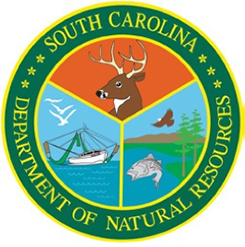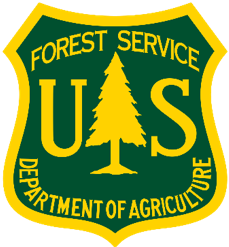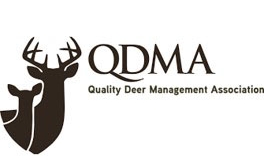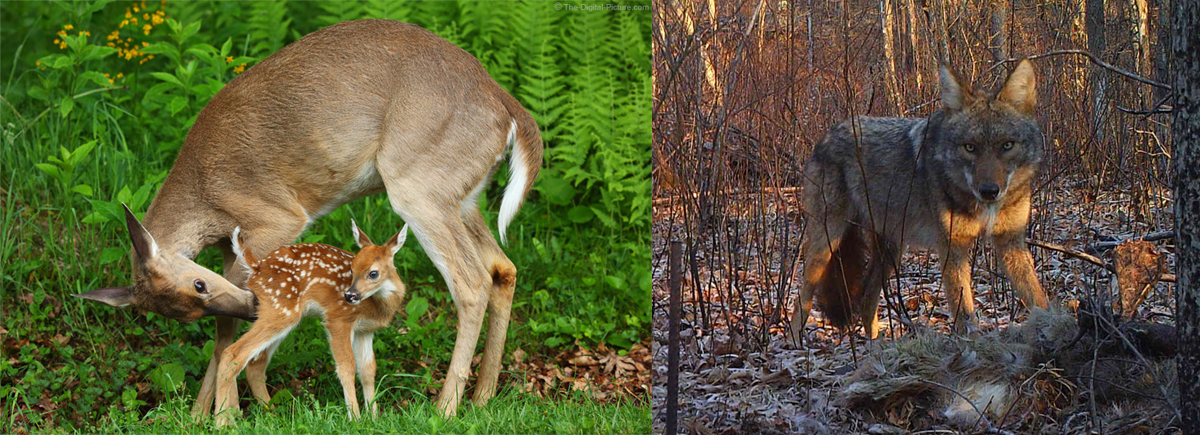Deer-Coyote Interaction Study
Clemson University, South Carolina DNR, and USDA Forest Service are collaborating on a new study to better understand how coyotes are affecting deer in the Piedmont region of South Carolina. Based on past research in South Carolina, it has been shown that coyotes can negatively affect deer populations. Despite efforts by landowners and hunters to trap and shoot coyotes, they are now part of the natural system and will likely continue to affect deer management at some level. We hope to determine how to best manage both species to ensure a healthy deer population. This study is being conducted in McCormick County, was initiated in 2018, and will continue for 5 years.
What we hope to learn from this study:
- How are deer responding to active habitat management?
- What are the major causes of adult and fawn mortality?
- How many does and fawns do coyotes take in the Piedmont region of South Carolina? Is it similar to other places in the Southeast?
- Why do coyotes find some fawns and not others, and can we influence that?
- How are coyotes affecting other native predators (like bobcats and foxes)?
- Do deer feeders also attract coyotes and increase the risk of coyote predation on deer?
Study Timeline:
- December 2018 - Coyotes trapped and fitted with GPS collars
- January/February 2019 - Does captured and fitted with GPS collars & birthing transmitters
- May, June, July & August 2019 - Fawns captured when born and fitted with GPS collars. Verify & track movements in relation to collared coyotes
- 2020 - Repeat trapping & collaring of new animals, monitor interactions
- 2021 - Repeat trapping & collaring of new animals, monitor interactions
- 2022 – Final project reporting
How you can help:
In order for this study to be successful, enough marked coyotes must remain alive so their activities can be monitored, especially in relation to GPS-collared deer. Due to the value of collared research animals, we ask that you consider not killing a GPS-collared coyote unless it is actively depredating livestock or causing other immediate problems.
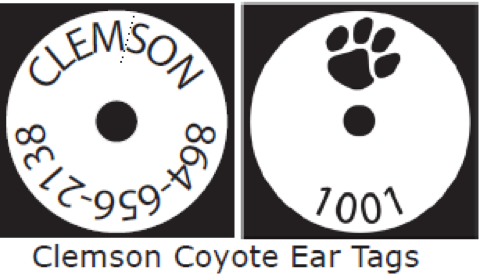
If you do shoot a collared or ear-tagged coyote we would like to know. Call the number on the ear tag. There is no penalty for killing a study animal, and just knowing the fate of each tagged coyote is very important information for us.
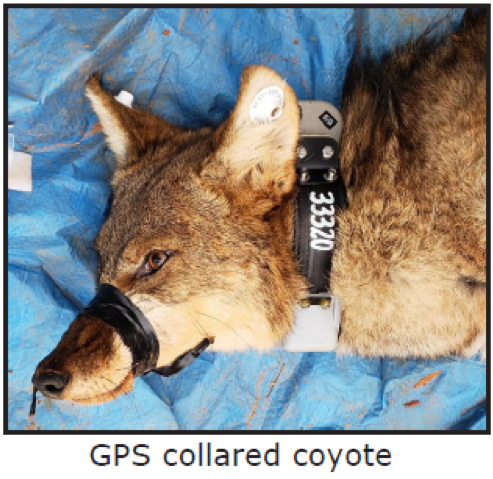
Additionally, there is no penalty for shooting a collared doe during regular deer season. If you shoot or otherwise kill a doe with a collar or ear tags, we would like to know, so please contact the number on the ear tag. If possible, we would like to obtain the jawbone from research animals, so we will ask that you keep the head of carcasses so we may obtain them. If you kill a collared doe via vehicle collision, and plan to keep the carcass for consumption, please contact the number on the ear tag or Charles Ruth (contact info below) to ensure the meat is safe to eat.
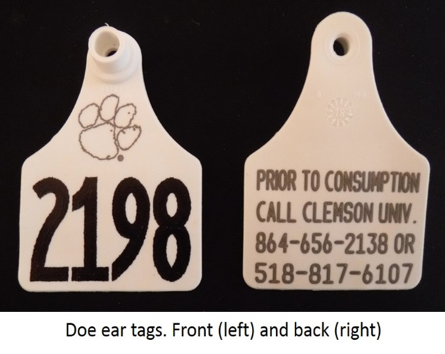
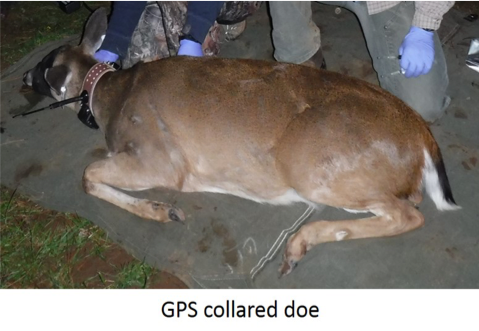
Project Leaders:
Clemson University
Dr. David Jachowski, Assistant Professor, djachow@clemson.edu, 864-656-2138
Alex Jensen, (coyote study) PhD Graduate Student, ajense2@clemson.edu
Mike Muthersbaugh, (deer study) PhD Graduate Student, mmuther@clemson.edu
SC Department of Natural Resources
Jay Butfiloski, Furbearer Project Leader, butfiloskij@dnr.sc.gov, 803-734-4024
Charles Ruth, Deer Project Leader, ruthc@dnr.sc.gov, 803-734-8738
USDA Forest Service
Dr. John Kilgo, Research Wildlife Biologist, john.kilgo@usda.gov, 803-725-0561
